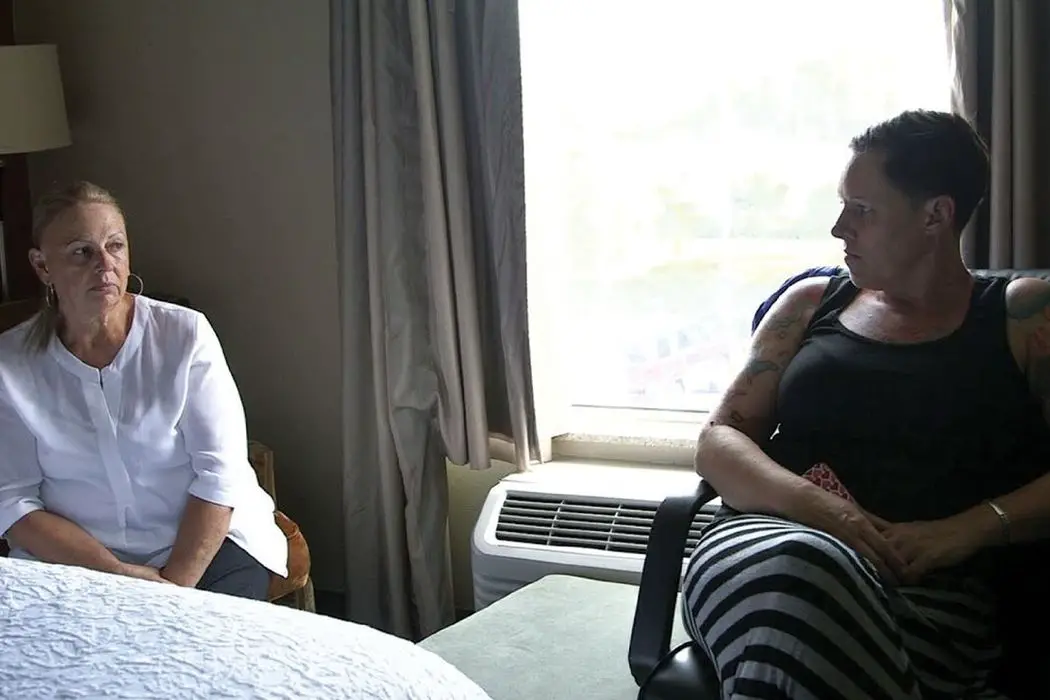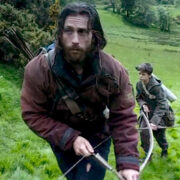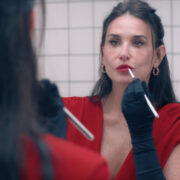THE FAMILY I HAD: A Harrowing Exploration Of A Torn-Apart Family

Nathan decided to take a gap year after completing his…
The story of The Family I Had feels like the efforts of a Hollywood brain-storming session to craft the most captivating ‘crime story thriller’ that simply got out of hand, spiraling beyond comprehension in the first draft. It’s very much reality for the Lee family though, who were torn apart when 13 year-old Paris strangled and viciously stabbed his four year-old sister, Ella, 17 times in a fit of rage in 2007 on Super Bowl Sunday. Ella and Paris’ mother, Charity, was only a child herself when her own father was murdered and her mother was arrested under suspicion of organizing the mafia hit. In Katie Green and Carlye Rubin’s harrowing documentary, the family try and comprehend the inexplicable – and it’s an appropriately devastating watch.
The Family I Had begins with family archive film of Paris and Ella opening gifts on Christmas Day together, an assertion of happy childhood memories shared now soured by the schismatic crime that occurred just years after the footage was shot; the 911 call made by Paris in the aftermath of the incident cannot help but shock you to your core, but it is Charity’s recollection of the moment she was informed by the police of the brutality that took place at her home as she worked for the evening that devastates you the most. In some of the most shocking and distressing scenes of the year, Charity explains the moment the world opened up beneath her: essentially losing both of her children in one horrendous moment that changed the family forever.
Authentic documentary-making
The Family I Had is a difficult watch and it doesn’t get much easier to stomach after those distressing opening scenes – but it does take a slightly different route to the one you may be expecting. Rather than focusing wholly on the crime, it considers the aftermath and the new dynamic more carefully, studying Charity’s relationship with her now-convicted son; the strained situation with her mother, who tried to take her to court for guardianship over Paris; and the bond with her new child and her vow to protect him from the world of crime and mental health issues he has seemingly been born into.

A great deal of the documentary’s authenticity steams from the one-on-one interviews with the three at the centre; Charity leads us through the events, operating as the audience’s anchor; Paris, from behind bars, with a disconcerting composure, discusses the crime and its fall-out; while mother and grandmother Kyla reveals the stream of crime that runs through the Lee family, sharing the frayed relationship she has with her daughter.
It’s very easy to like Charity; whether it’s the endless sympathy you feel towards her, her endearing quality, or the unconditional care she generates towards all three of her children – Phoenix was born after the horrifying events – she appears comfortable but emotive when sharing her story in front of the camera. It’s always a fantastic sign of generous directors at the helm that someone harboring as much pain as Charity does can open up and share that pain. It’s not something all directors can manage, but Green and Rubin excel. Charity shares her pain in excruciating detail and a more insightful, powerful documentary is created because of that openness.
Helmed by generous directors
Green and Rubin have openly admitted that The Family I Had is not the film it was originally intended to be: it once focused on the criminal juvenile system but – as production developed over time – they decided to follow the more personal, intimate story at hand. As such, they managed to craft a moving, quiet rumination on family, unconditional love and coping. The trials and tribulations of the Lee family could have so very easily been ‘glamorized’ to create a Hollywood-esque reconstruction that dismissed the individuals at the center in search for more bite – but the dual directors remain committed to the authentic, heartbroken family at the center of it all.

While the film is inherently focused on the impossible questions and circumstances of the crime, it explores some potent themes in the meantime. Nature versus nurture is considered profoundly, maneuvering the landmines that may have contributed to Paris’ outrage both carefully and confidently. Was Paris born into a life of crime, or did something else – the birth of his sister and drain on attention – light the spark? It’s never overt but subtly pondered, enriching the documentary with these potent questions and complex ideas.
It’s something Paris himself reflects on during the one-to-one interviews, as disconcerting as they are fascinating. Charity contemplates whether she would ever allow Phoenix to meet Paris: could she safely and securely allow a brother that murdered his sister to ever meet his new sibling? It’s these smaller moments that the full-scale of the tragedy is felt so strongly and the no-frills approach keeps it powerful.
Structure is key in the documentary’s success. The Family I Had dips in and out of timelines confidently without ever becoming disorientating. It reflects on the past, deals with the present and looks towards the future, all with balance, control and skill. Details are unfurl slowly, peppered across the film not only for dramatic effect but because it feels appropriate and natural. It avoids a heavy information-dump that would have easily overwhelmed – particularly considering the sensitive subject matter – providing it (and you) with the breathing space needed to fully absorb the details of the crime.
In Conclusion: The Family I Had
The Family I Had may scale back on the shock factor after the opening ten minutes but the impact of the tragedy and its complexities are never far from the forefront. Green and Rubin are confident and generous directors: despite a few issues with the pacing (some of the revelations seem accidental and not fully-explored, with multiple questions left unanswered – but so is life, I guess), the one-on-one interviews and intimate exploration are key to its success. Their documentary is sensitively-crafted and thoughtful, utterly harrowing but all the more powerful for being so; those at the center share painful memories and bravely display their wounds, open to how they are still being impacted by the tragedy and how they always will be reminded of it.
Green and Rubin never lose sight of the painful tragedy at the broken heart of this documentary and it’s why it is so successful in its main aim. Emotionally exhausting, The Family I Had is a powerful documentary. It is devastatingly sad but with a rare glimmer of hope – moving forward may be difficult but if anyone can inspire hope in the face of difficulty, it’s Charity Lee.
What’s your favourite documentary of the year?
Watch The Family I Had
Does content like this matter to you?
Become a Member and support film journalism. Unlock access to all of Film Inquiry`s great articles. Join a community of like-minded readers who are passionate about cinema - get access to our private members Network, give back to independent filmmakers, and more.
Nathan decided to take a gap year after completing his A-Levels (Media Studies, English Language & Literature and Drama & Theatre Studies) to gain some journalism and media experience before making the next step. In that time, he has continued to run his blog - PerksOfBeingNath - which is now approaching its second anniversary and crammed in as many cinema visits as humanly possible. Like a parent choosing their favourite child, he refuses to pick a favourite film but admits that it is currently a tight race between Gone Girl and La La Land. Self-admitted novice on cinema of the past and always open to suggestions. http://perksofbeingnath.blogspot.co.uk











